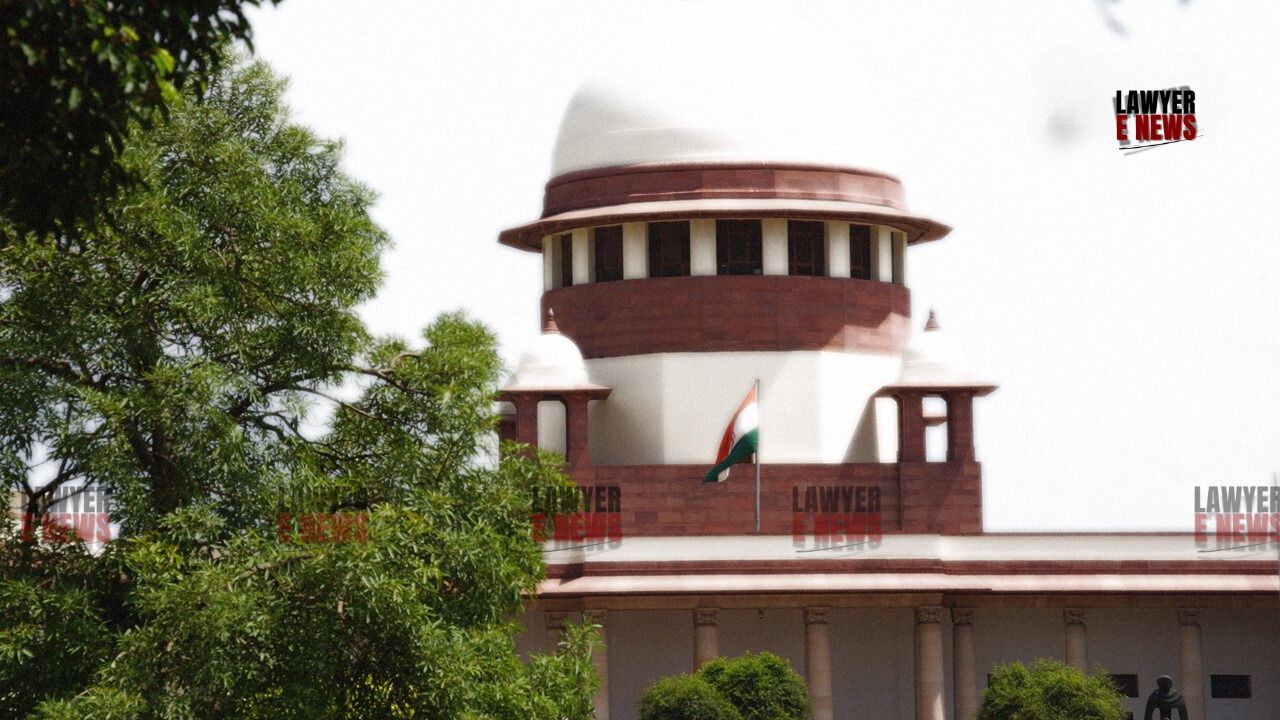-
by Admin
16 February 2026 1:47 PM



"Section 18 of Limitation Act Fully Applies to Proceedings Under Public Premises Act" - In a significant ruling Supreme Court held that the acknowledgment of liability by the licensees in their communication suffices to extend the period of limitation under Section 18 of the Limitation Act. The Court restored the recovery proceedings initiated by the New Mangalore Port Trust (NMPT) which had been quashed earlier by the Karnataka High Court on the ground of limitation. The Supreme Court observed, "Once the Limitation Act applies, all its provisions will be applicable to the proceedings under the PP Act, including Section 18."
The dispute arose when NMPT, by notifications dated 20.06.2005 and 23.07.2010, revised license fees payable by the respondent-licensees retrospectively for the period beginning 20.02.2007. The Licensees, engaged in loading and unloading operations at the port, challenged the retrospective revision of fees. Though the learned Single Judge of the High Court upheld the retrospective applicability of the notification in 2013, intra-court appeals were filed by the licensees, which are still pending without any interim protection.
In the meantime, the NMPT raised demands for the arrears of license fees. The Estate Officer, acting under the Public Premises (Eviction of Unauthorised Occupants) Act, 1971, initiated proceedings under Section 7 of the Act. The respondents resisted the demands, contending that the recovery was barred by limitation and that the pendency of their appeal precluded the recovery. The District Judge and subsequently the Karnataka High Court quashed the recovery proceedings holding them to be barred by limitation.
The central issue before the Supreme Court was whether the recovery proceedings initiated by NMPT were time-barred under the Limitation Act, or if the respondents’ letters acknowledging the demand deferred the limitation period under Section 18.
The appellants contended that the respondents had, in their communications dated 04.02.2015, 07.09.2015, and 25.02.2016, clearly acknowledged the liability, albeit requesting postponement till their intra-court appeal was decided. This acknowledgment, they argued, was sufficient to extend limitation under Section 18.
The respondents argued that limitation was a mixed question of law and fact and could not be invoked without pleadings, and that the communications did not amount to acknowledgment but rather a denial pending appeal.
Rejecting this, the Court categorically held, "The respondents were throughout alleging that the time had not come as the appeals were pending before the Division Bench. This acknowledgment was given in response to the demand by the lessor made well within the limitation of 3 years."
Further, the Court clarified, "The respondents cannot argue that only Section 3 of the Limitation Act applies and not Section 18. Once the Limitation Act applies, all its provisions, including Section 18, will apply to the proceedings under the PP Act."
The Court further emphasized, "The communication dated 04.02.2015 is not disputed by the respondents. There is no dispute on the contents either of the said communication. If that be so, under admitted position, and in view of Clause (a) of explanation to Section 18 of the Limitation Act, the acknowledgment of the liability stands established."
The Court disagreed with the High Court’s finding that the recovery proceedings were time-barred. It found that the respondents’ written replies to the demand notices effectively deferred the limitation under Section 18. The Court observed, "Section 18 of the Limitation Act is very clear that where liability is acknowledged in respect of any property or right, a fresh limitation may be computed from the time when the acknowledgment was so signed."
The Bench also highlighted that the High Court erred by proceeding with the matter without waiting for the outcome of the pending intra-court appeals. "The High Court ought not to have proceeded with the hearing of the writ petition. Rather, it should have awaited the outcome of the pending intra-Court appeals," remarked the Court.
The Court also criticized the respondents for resisting recovery solely on technicalities while having no substantial objection to the dues. It noted, "The respondents had been objecting to the demand on the ground of pendency of this intra-court appeal. As such there was no denial to pay nor the amount was disputed."
In conclusion, the Court restored the writ petitions of NMPT for fresh consideration by the High Court after the disposal of the pending intra-court appeals of the respondents.
The Supreme Court allowed NMPT's appeals, set aside the judgment of the Karnataka High Court, and restored the writ petitions to be heard after the decision of the pending intra-court appeals. The Court firmly ruled that "The respondents therefore ought not to have benefitted out of the technical objection raised by them regarding the limitations when they were themselves bound by the decision of the learned Single Judge and had no other objection or denial to the demand except that of the pending appeals before the Division Bench."
Date of Decision: April 3, 2025
